Dua & Surah PDF
Blog
allah, la hawla wala quwata illa billah kay wazifa ki fazilat, la hawla wala quwwata, la hawla wala quwwata illa billah, la hawla wala quwwata illa billah benefits, la hawla wala quwwata illa billah fazilat, la hawla wala quwwata illa billah in arabic, la hawla wala quwwata illa billah ka wazifa, la hawla wala quwwata illa billah ki fazilat, la hawla wala quwwata illa billah meaning, la hawla wala quwwata illa billah padhne ki fazilat
pdfislamicdua
0 Comments
La Hawla Wala Quwwata Illa Billah Benefits with Hadith
The phrase “La hawla wala quwwata illa billah” (لَا حَوْلَ وَلَا قُوَّةَ إِلَّا بِٱللَّٰهِ), which means “There is no power or strength except with Allah,” has deep meaning in Islam.Known as al-Hawqalah, this phrase is one of the most beloved forms of dhikr (remembrance of Allah), deeply connecting believers to their Lord.
Meaning of La Hawla Wala Quwwata Illa Billah
| Dua | Translation | Transliteration |
|---|---|---|
| لَا حَوْلَ وَلَا قُوَّةَ إِلَّا بِاللَّهِ | “There is no power and no strength except with Allah.” | La Hawla Wala Quwwata Illa Billah |
La Hawla Wala Quwwata Illa Billah Benefits with Hadith
Here are some of the remarkable benefits and rewards associated with saying these words:
1. A Treasure from Paradise
The Prophet Muhammad (ﷺ) emphasized the value of this phrase, referring to it as a “treasure from the treasures of Paradise.”
Abu Hurairah said:
“The Messenger of Allah (ﷺ) said to me: ‘Be frequent in saying: “There is no might or power except by Allah, (Lā ḥawla wa lā quwwata illā billāh).” For verily, it is a treasure from the treasures of Paradise.’” Jami` at-Tirmidhi 3601
2. Planting Trees in Jannah
The Messenger of Allah ﷺ passed by Ibrahim during his night journey and asked Gabriel, “Who is with you, O Gabriel?” He replied, “This is Muhammad.” Ibrahim said to him, “Tell your Ummah (nation) to increase in planting the gardens of Paradise, for its soil is pure and its space is vast.” Muhammad asked, “And what are the gardens of Paradise?” Ibrahim replied, “There is no power or might except with Allah.”.Narrated by Ahmad (23552), Ibn Hibban (821), Al-Tabarani in “Al-Mu’jam Al-Kabir” (3898)
3. A Gate to Paradise
The phrase has been referred to as one of the “gates of Paradise.”
Qais bin Sa`d bin `Ubadah narrated, :
that his father offered him to the Prophet (ﷺ) to serve him. He said: “So the Prophet (ﷺ) passed by me, and I had just performed Salat, so he poked me with his foot and said: ‘Should I not direct you to a gate from the gates of Paradise?’ I said: ‘Of course.’ He (ﷺ) said: ‘There is no might or power except with Allah (Lā ḥawla wa lā quwwata illā billāh). (Jami` at-Tirmidhi 3581).
4. Forgiveness of Sins
Abdullah bin Amr narrated that :
the Messenger of Allah (ﷺ) said: “there is not anyone upon the earth who says: ‘None has the right to be worshipped but Allah, and Allah is the Greatest, and there is no might nor power except by Allah, (Lā ilāha illallāh, wa Allāhu akbar, wa lā ḥawla wa lā quwwata illā billāh) except that his sins shall be pardoned, even if they were like the foam of the sea. Jami` at-Tirmidhi 3460
5. Brings Goodness and Reward
Narrated Abdullah ibn AbuAwfa:
A man came to the Prophet (ﷺ) and said: I cannot memorize anything from the Qur’an: so teach me something which is sufficient for me. He said: Say Glory be to Allah, and praise be to Allah, and there is no god but Allah, and Allah is most great, and there is no might and no strength but in Allah.
He said: Messenger of Allah, this is for Allah, but what is for me? He said: Say: O Allah have mercy on me, and sustain me, and keep me well, and guide me. When he stood up, he made a sign with his hand (indicating that he had earned a lot).
The Messenger of Allah (ﷺ) said: He filed up his hand with virtues.” (Sunan Abi Dawud 832).
6. Affirmation from Allah
Al-Agharr Abu Muslim narrated that he bears witness from Abu Sa’eed Al-Khudri and Abu Hurairah, that they bear witness that :
The Prophet (ﷺ) said that when one recites : ‘There is none worthy of worship except Allah, and there is no might or power except by Allah, (Lā ilāha illallāh, wa lā ḥawla wa lā quwwata illā billāh)’ Allah says: ‘There is none worthy of worship except Me, and there is no might or power except by Me.’” And he used to say: “Whoever says it in his illness, then dies, the Fire shall not consume him.” Jami` at-Tirmidhi 3430
Recent Posts
- Authentic Dua for Breaking Fast-Zahabaz Zamau Wabtallatil
- Meaning of Innallaha Ala Kulli Shayin Qadeer in Quran With Benefits
- Rabbi Adkhilni Mudkhala Sidqin Dua for Success
- Allahumma La Sahla Dua Hadith Meaning and Translation
- Read Surah Al Mulk Full 1-30 Download PDF In English
Some Additional key points on La Hawla Wala Quwwata Illa Billah
Angels’ Recognition of Allah: Every new angel born into existence says “La hawla wa la quwwata illa billah” (There is no power and no strength except with Allah). This phrase is the first recognition of the angel as it enters the world.
Importance for Humans: For humans, saying “La hawla wa la quwwata illa billah” signifies reliance on Allah for strength and power, recognizing that it is only Allah who can change states and grant success.
Divine Decree and Submission: The phrase connects to the belief in Qadr (divine decree) and total submission to Allah’s will. Saying it shows trust that Allah has control over all affairs and that only He can guide and strengthen us.
Frequent Mention: The Prophet Muhammad (saw) encouraged saying “La hawla wa la quwwata illa billah” frequently. It is said to be a treasure of Jannah, rewarding those who repeat it.
Imam Ibn Hajar’s Explanation: Imam Ibn Hajar explained that the phrase means there is no way to move away from sin except with Allah’s help and no strength to worship Him except by His assistance.
No Power Without Allah: Everything, including strength, guidance, and ability to worship, is given by Allah. Recognizing this is key to spiritual growth and submission to His will.
The Role of Dua: By frequently saying “La hawla wa la quwwata illa billah,” a person submits themselves completely to Allah, acknowledging that it is only by His will that they can achieve anything.
Protection and Guidance: When a person says “La hawla wa la quwwata illa billah” as they leave their house, angels protect and guide them, and they are shielded from evil.
Connection to Salah: When responding to the call of prayer, saying “La hawla wa la quwwata illa billah” signifies that success in prayer, and all acts of worship, come only from Allah.
Dua for Forgiveness: The Prophet (saw) taught that if someone wakes up and recites specific adhkar, including “La hawla wa la quwwata illa billah,” they are forgiven their sins, even if they are as numerous as the foam of the sea.
Mixing Adhkar: Combining different forms of dhikr, including “La hawla wa la quwwata illa billah,” grants rewards in this life and the hereafter, including answered prayers and forgiveness.
Final Reward: Ultimately, through sincere dhikr and submission, the reward is entry into Jannah, specifically Jannatul Firdaus, with the Prophet Muhammad (saw).
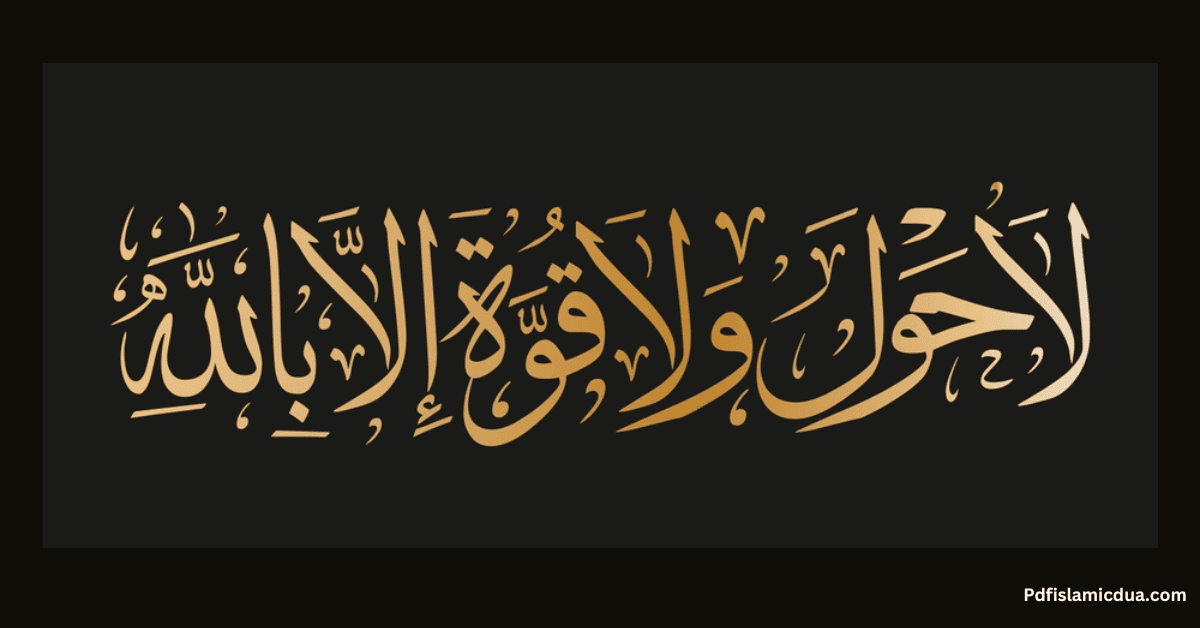
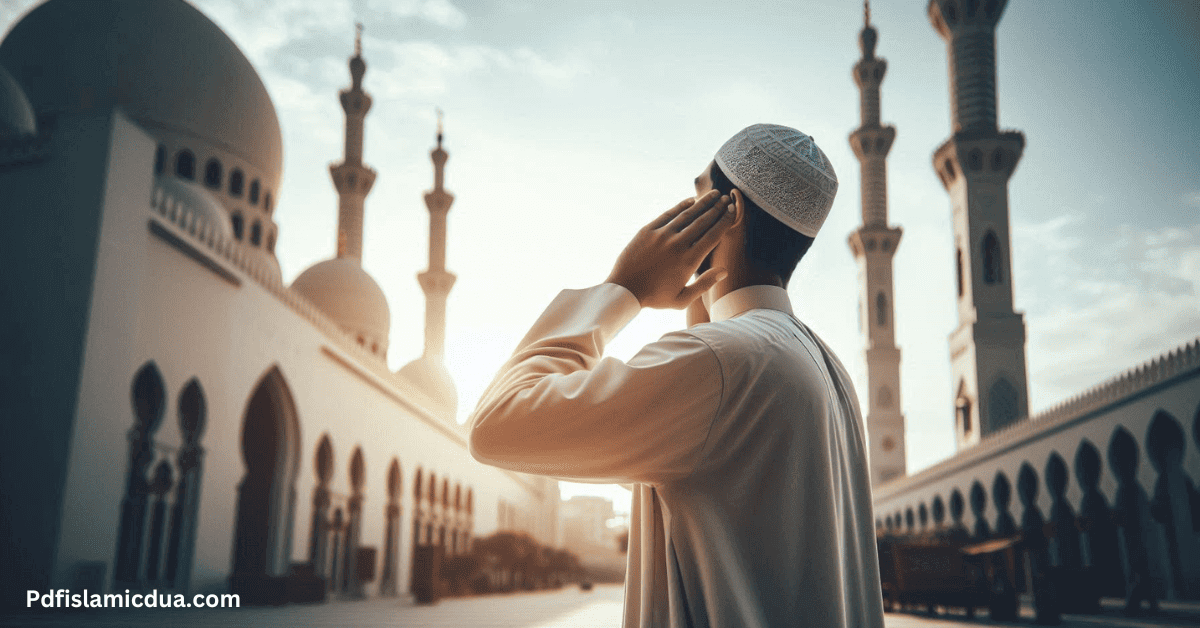
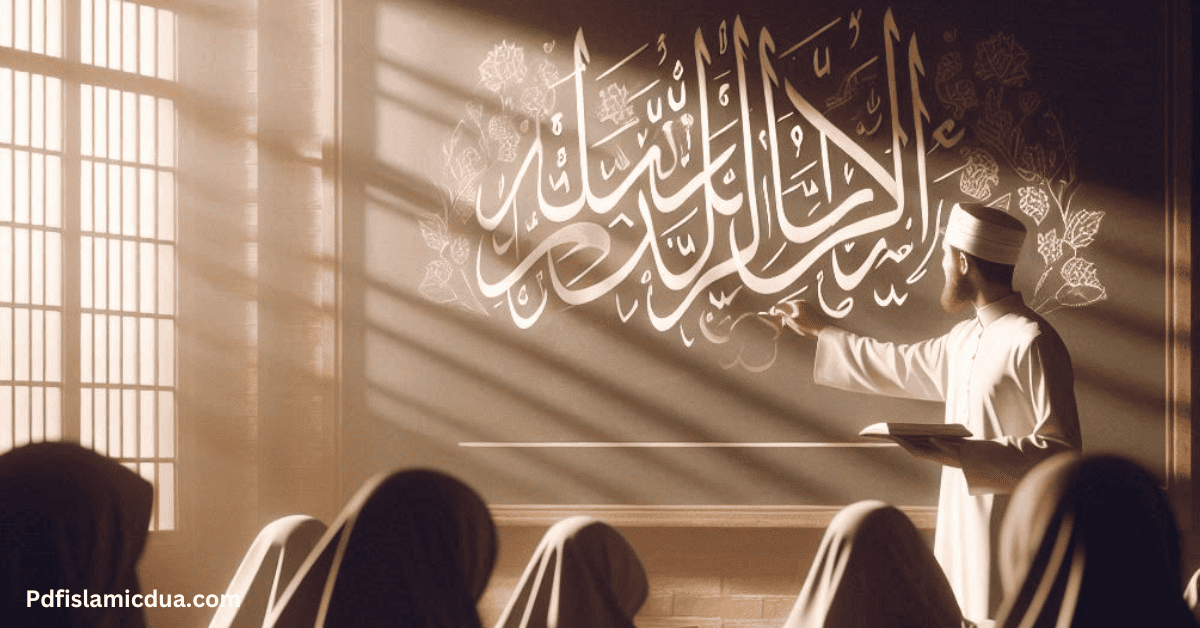
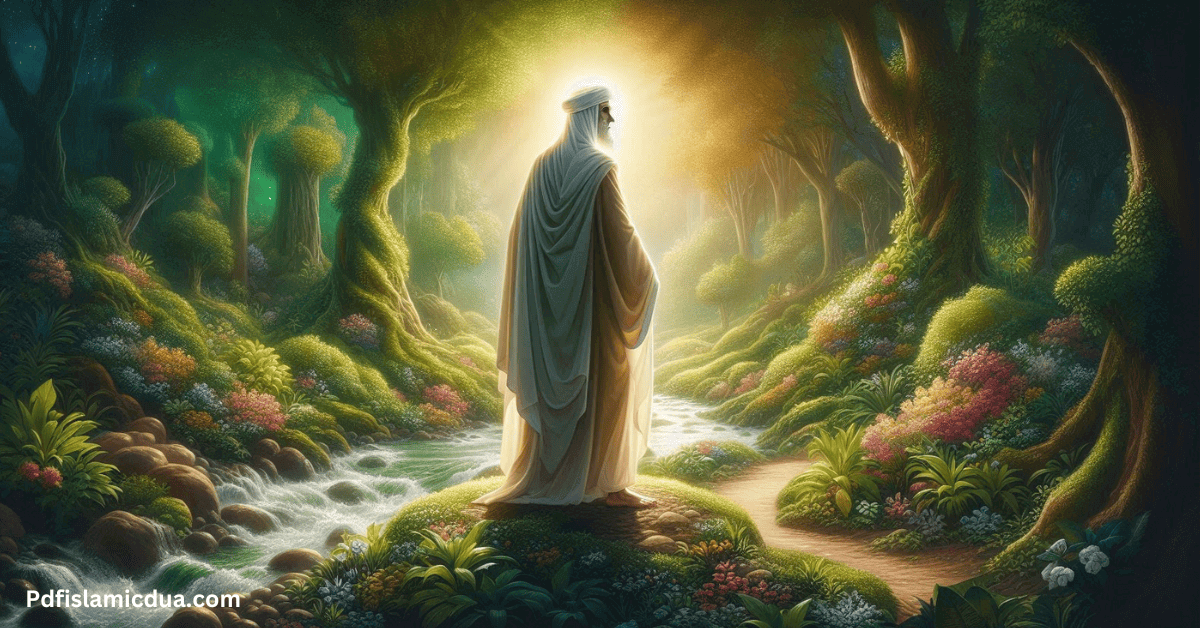
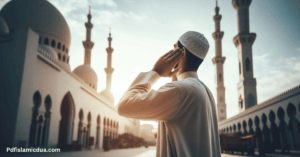
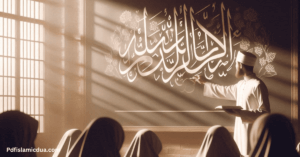
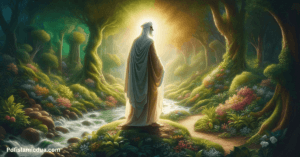


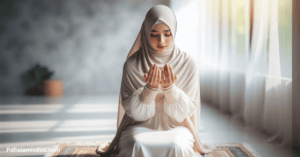
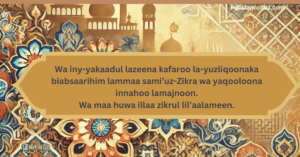

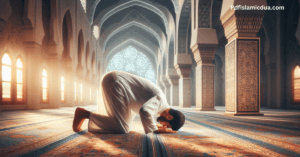

Post Comment